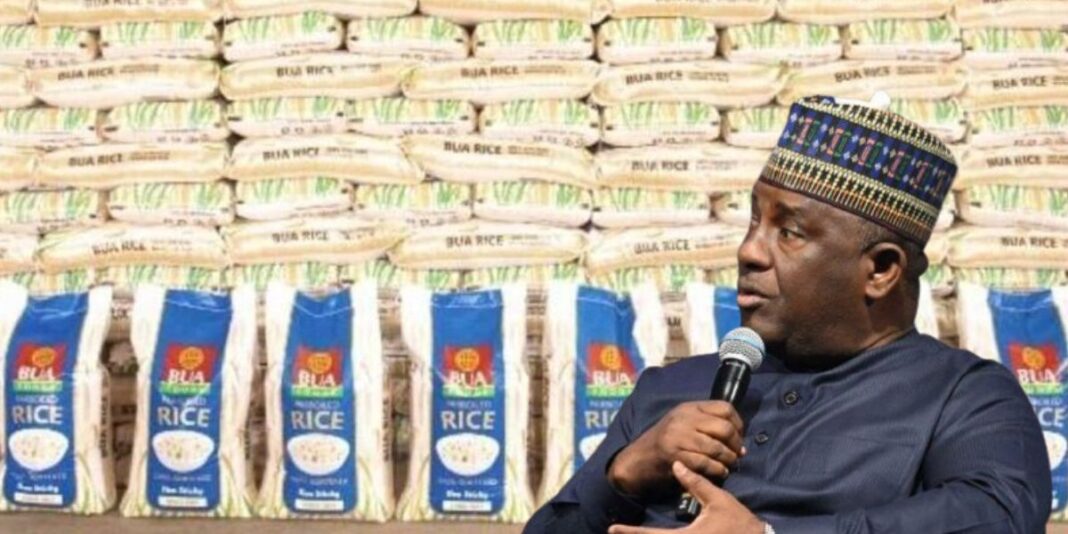Chairman of BUA Group, Abdul Samad Rabiu, has pledged to further reduce the prices of rice and other essential food items, warning that those hoarding these commodities in hopes of profit will end up losing money.
Speaking to State House Correspondents on Thursday after a meeting with President Bola Tinubu at the Presidential Villa in Abuja, Rabiu commended the administration for implementing strategic policies—particularly the waiver on imported food items—which, he said, have already led to a decline in food prices.


“Food prices in Nigeria are coming down, and we’re doing everything possible to support the efforts of the present administration,” Rabiu stated.
He specifically praised President Tinubu’s July 2024 directive suspending customs duties on select food imports—including brown rice, maize, wheat, and sorghum—as a game-changing decision that disrupted speculative food hoarding practices.
Recalling last year’s soaring prices, Rabiu said:
- A 50kg bag of rice went for ₦100,000
- Wheat or flour cost about ₦80,000 per bag
- Maize was around ₦60,000
- A carton of pasta sold for ₦20,000
He explained that during harvest seasons, hoarders would typically buy up commodities such as paddy rice and withhold them from the market to artificially drive up prices after the season ended.
“These hoarders used to buy paddy at ₦400,000 to ₦500,000 per tonne and hold it until prices jumped to ₦800,000. But the duty waiver policy has disrupted that cycle. Many of them are now incurring losses,” he revealed.


While affirming the need to protect Nigerian farmers, Rabiu emphasized that over 250 million Nigerians were being unfairly burdened by inflated food prices driven by a few profiteers.
“We’re confident that rice prices won’t rise any further. Once the new harvest comes in, farmers will get fair value, and hoarders will be more cautious. If they hoard, they’ll lose money,” he warned.
Cement Prices: Blaming Naira Devaluation, But Committing to Intervention
On the issue of cement, Rabiu pointed to naira devaluation as the primary driver of high costs, rather than profiteering by manufacturers. He broke down the numbers:
“With the naira now at ₦1,600 to the dollar, a ₦9,000 bag of cement translates to ₦180,000 per tonne, or about $110–$120. That’s still competitive globally. There’s nowhere else in Africa where cement is significantly cheaper.”
He noted that operational costs have tripled in recent years:
- Monthly gas bills at BUA’s Obu plant have risen from ₦5 billion to ₦15 billion
- Spare parts, mining costs, and technical expertise are all paid in dollars
Despite these challenges, Rabiu announced a major intervention in collaboration with Aliko Dangote, Chairman of Dangote Group.

“We’ve agreed to freeze the price of cement for all contractors working on Renewed Hope Initiative projects. This means there will be no price hikes for government-backed projects—for the foreseeable future,” he said.
Rabiu concluded by reaffirming BUA Group’s support for the Tinubu administration’s economic recovery plans and assured Nigerians that efforts are in full swing to keep food and cement prices stable, boost local production, and shield the public from exploitative practices.




